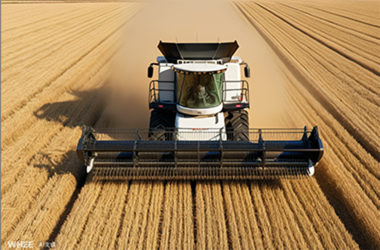Efficient Agricultural Solutions for Precision Crop Spraying and Yield Enhancement
The Evolution and Importance of Crop Sprayers in Modern Agriculture
Agriculture has undergone a remarkable transformation over the past century, driven by advances in technology and innovation. One of the most significant developments in this field is the evolution of crop sprayers. These essential tools play a pivotal role in modern farming, ensuring that crops receive the necessary nutrients while safeguarding them against pests and diseases. This article explores the various types of crop sprayers, their importance in agricultural practices, and the future of spray technology.
Types of Crop Sprayers
Crop sprayers come in various forms, each designed to meet specific agricultural needs. The three most common types are
1. Handheld Sprayers Ideal for small-scale farmers and garden enthusiasts, handheld sprayers are lightweight and easy to maneuver. They allow for precision application in small areas, making them suitable for targeting specific plants or treating localized infestations.
2. Tractor-Mounted Sprayers These sprayers are attached to agricultural tractors, enabling farmers to cover larger areas quickly and efficiently. They are equipped with wide booms that distribute the spray over a vast swath of crops, ensuring thorough coverage. Tractor-mounted sprayers can also be calibrated for different crops, allowing farmers to adjust the volume and type of chemicals used based on the specific needs of their fields.
3. Aerial Sprayers Often employed for extensive agricultural operations, aerial sprayers utilize aircraft to distribute fertilizers, herbicides, and pesticides from the air. This method is particularly effective for large farms, as it allows for rapid application over wide areas, reducing labor costs and time spent in the field.
The Importance of Crop Sprayers
Crop sprayers are crucial for several reasons. Primarily, they enhance crop yield and quality by ensuring that plants receive the necessary nutrients and protection from diseases and pests. In an age where food production must keep pace with a growing global population, effective pest and nutrient management is essential.
crop sprayer

Moreover, crop sprayers contribute to sustainable agriculture practices. By enabling precise application of chemicals, farmers can minimize waste and reduce the environmental impact of farming. Precision agriculture, which relies on data-driven decision-making, is enhanced by the use of advanced sprayers equipped with technology such as GPS and sensors. These innovations allow farmers to apply inputs only where and when needed, decreasing chemical runoff into surrounding ecosystems.
Another advantage of modern crop sprayers is their efficiency. Traditional methods of applying fertilizers and pesticides often involved manual labor, which could be time-consuming and labor-intensive. However, with the advent of mechanized sprayers, farmers can save time and labor costs while increasing the speed and efficiency of their operations.
The Future of Crop Spraying Technology
Looking ahead, the future of crop spraying is poised for further innovation. As technology continues to evolve, several trends are emerging. One significant trend is the integration of drone technology in agriculture. Drones equipped with advanced spraying capabilities are expected to revolutionize the industry, offering farmers the ability to cover vast areas quickly with minimal physical effort.
Additionally, the development of smart sprayers that employ artificial intelligence and machine learning is on the horizon. These sprayers can analyze data from soil sensors and crop health monitors to determine the optimal type and quantity of input needed, ensuring that farms operate at peak efficiency.
Sustainability is also becoming a primary focus in the development of crop spraying technologies. Biodegradable and organic pesticides are gaining traction, prompting sprayer manufacturers to innovate designs that effectively handle these substances while minimizing environmental impact.
Conclusion
In conclusion, crop sprayers are an indispensable part of modern agriculture. They not only enhance crop yields and quality but also promote sustainable farming practices. As technology progresses, the future of crop spraying promises to bring even more efficient and eco-friendly solutions, helping farmers meet the demands of an ever-growing population while preserving the planet's resources. Embracing these advancements will be crucial in ensuring the sustainability and productivity of agriculture in the years to come.
-
SINOTRUK HOWO 84 Electric Dump Truck for Eco-Friendly Heavy HaulingNewsJul.26,2025
-
The Fast 16-Gear Manual Transmission Assembly for Heavy TrucksNewsJul.25,2025
-
Mercedes Benz Actros 1848 42 Tractor Truck for Sale - Reliable PerformanceNewsJul.24,2025
-
High-Quality Water Pump Assembly for Sinotruk Trucks – Durable & ReliableNewsJul.23,2025
-
Premium Truck Engine Antifreeze Coolant Fluid for Heavy Duty VehiclesNewsJul.22,2025
-
FOTON View G7 Mini Bus: Affordable & Spacious TransportNewsJul.22,2025
Popular products

























